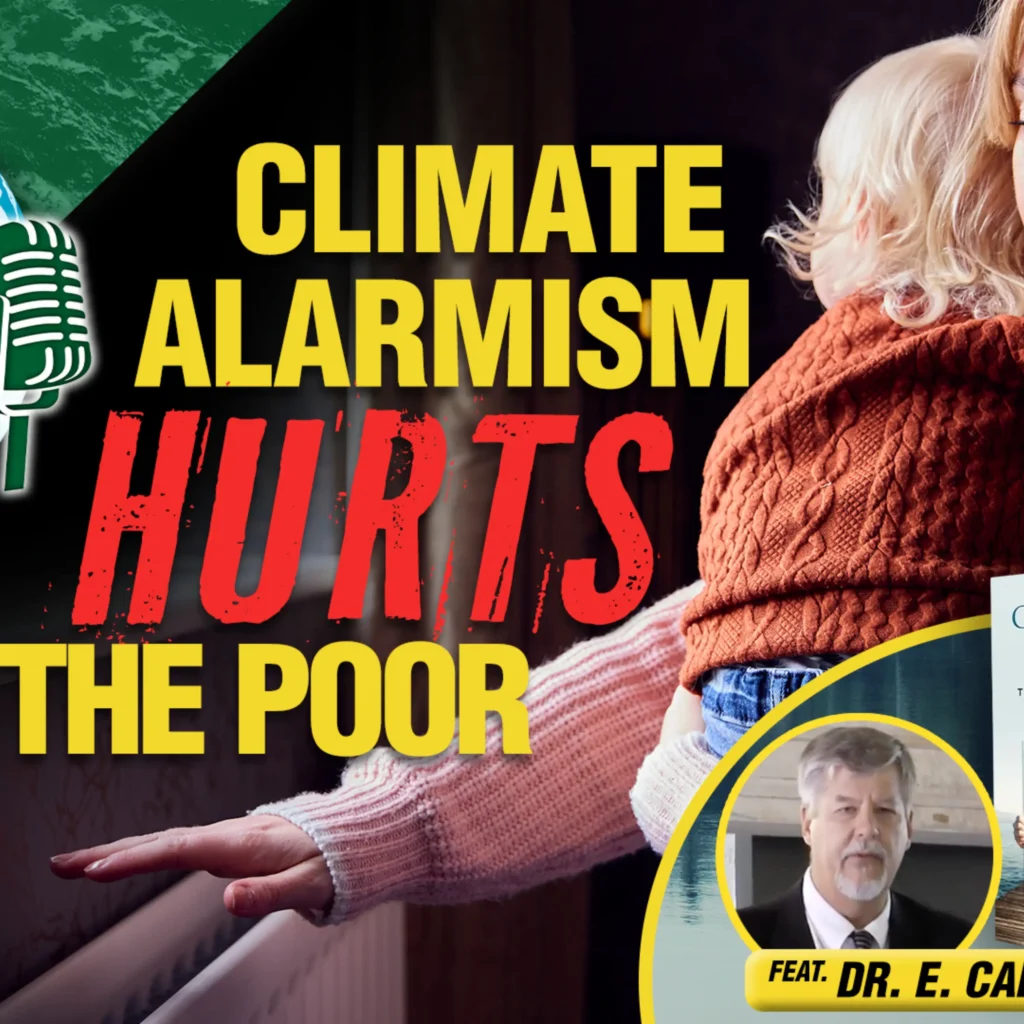Speakers on the panel on “Resetting Climate Policy” at The Heartland Institute’s 12th International Conference on Climate Change urged President Donald Trump to follow through on his pledges to unleash the nation’s energy potential and rein in what they described as an out-of-control federal bureaucracy.
“There is no science in climate science policy,” declared author Steve Milloy, publisher of JunkScience.com.
In science, Milloy said, you develop a hypothesis and test it to see if it is verified by real-word conditions. In the so-called climate science adopted by the left, the scientific method is jettisoned and data altered to arrive at the predetermined conclusion humans are causing a climate catastrophe, Milloy said.
“We’ve already made up our minds and have manipulated the data to fit our conclusions, and if you question us, we will smear you,” Milloy said, characterizing the attitude of climate activists.
Milloy said climate forecasts on which U.S. energy policy is based are often projected decades into the future and based on unverifiable claims.
“What passes for science today isn’t verifiable,” Milloy said. “If it can’t be verified within a reasonable amount of time, it’s worthless. Temperatures are said to be the ‘highest on record’ in places where there are no means to measure temperatures.”
Sad State of Peer Review
Milloy expressed scorn for the current state of the peer-review process, saying peer review now is little more than getting one’s friends to rubberstamp conclusions with the expectation you’ll do the same for them later.
“We don’t need peer review,” Milloy said. “We have the Internet, where experts can post their own comments in an open scientific free-for-all.”
Milloy said people criticizing Trump’s proposed cuts to climate research as potential threats to science that will harm the “next Einstein” ignore the fact Einstein did his best work while working in a Swiss patent office and wasn’t getting government grants.
Deliberately Destroyed Coal Industry
The Obama administration spent up to $20 billion per year on climate policy, yet the American people have absolutely nothing to show for it, Milloy said. In addition, Obama’s war on coal inflicted real harm. Not only were regulations such as the Clean Power Plan specifically designed to snuff out the industry, but foot-dragging on allowing the export of natural gas flooded the domestic market with cheap shale gas, further harming coal communities by reducing the value of the coal industry by 94 percent, Milloy said.
“When coal mines and coal-fired plants shut down, whole communities were devastated,” said Milloy. “With their livelihoods destroyed, people couldn’t leave and look for work elsewhere, because there was no one to sell their homes to.”
The full cost of all this is impossible to determine, because you can’t put a dollar value on opportunities lost, Milloy said. Trump administration Office of Budget Management Director Mick Mulvaney was right in saying money spent on climate change is wasted, Milloy said.
Bureaucratic Power Abuse
“EPA has rules looking for a problem,” said Bette Grande, a research fellow at The Heartland Institute, which publishes Environment & Climate News. Grande, who served as a North Dakota state representative from 1996 through 2014, decried the harm she said federal bureaucrats and environmental groups are inflicting on local communities.
Regulations imposed by the Obama administration’s EPA and Bureau of Land Management specifically targeted fossil-fuel development, especially coal mining and fracking on federal lands.
Grande said EPA’s policy of settling lawsuits filed by environmental groups on terms favorable to federal bureaucrats and environmental extremists, called “sue and settle,” allows the agency to impose regulations without going through the normal public review and comment process or taking into account input from affected states and localities, thus circumventing congressional input and oversight.
Grande said environmentalists who flocked to North Dakota to block the completion of the Dakota Access Pipeline showed hypocrisy and a lack of true concern for the environment by leaving behind tons of trash that cost tens of millions of dollars to clean up.
‘Climate-Industrial Complex’
Myron Ebell, director of energy and environmental policy at the Competitive Enterprise Institute and leader of President Trump’s EPA transition team, applauded Trump’s actions to roll back many of the Obama administration’s climate policies. Decades of hard work by watchdog groups opened the door for significant regulatory reform, Ebell said.
“It’s the people in this room and people like you around the country and allied groups—like Heartland, [Committee for a Constructive Tomorrow], [Institute for Energy Research], Junkscience.com—who have made this possible, by working for decades, … the people who’ve worked persistently against global warming alarmism, that made this election result possible,” said Ebell.
But Ebell warned “draining the swamp,” as Trump promised to do, won’t be easy.
“The swamp creatures are still there,” Ebell said, and the Climate-Industrial Complex will defend its power, subsidies, and its financial interest in attacking fossil fuels and promoting renewable energy. EPA employees are tight with Trump’s opponents, including those in the media, and can be counted on to cause trouble for the administration, Ebell said. This is all the more reason, he said, for Trump to cut EPA’s workforce.
Trump must fulfill his campaign promises to withdraw the United States from the Paris Climate Agreement and have EPA rescind its carbon-dioxide Endangerment Finding, Ebell said. Failure to keep those promises would leave the administration open to lawsuits by environmentalists and green-energy lobbyists who argue the government cannot abandon rules and agreements rooted in the Endangerment Finding, which was determined to be legal by federal courts.
Bonner R. Cohen, Ph.D. ([email protected]) is a senior fellow at the National Center for Public Policy Research.





